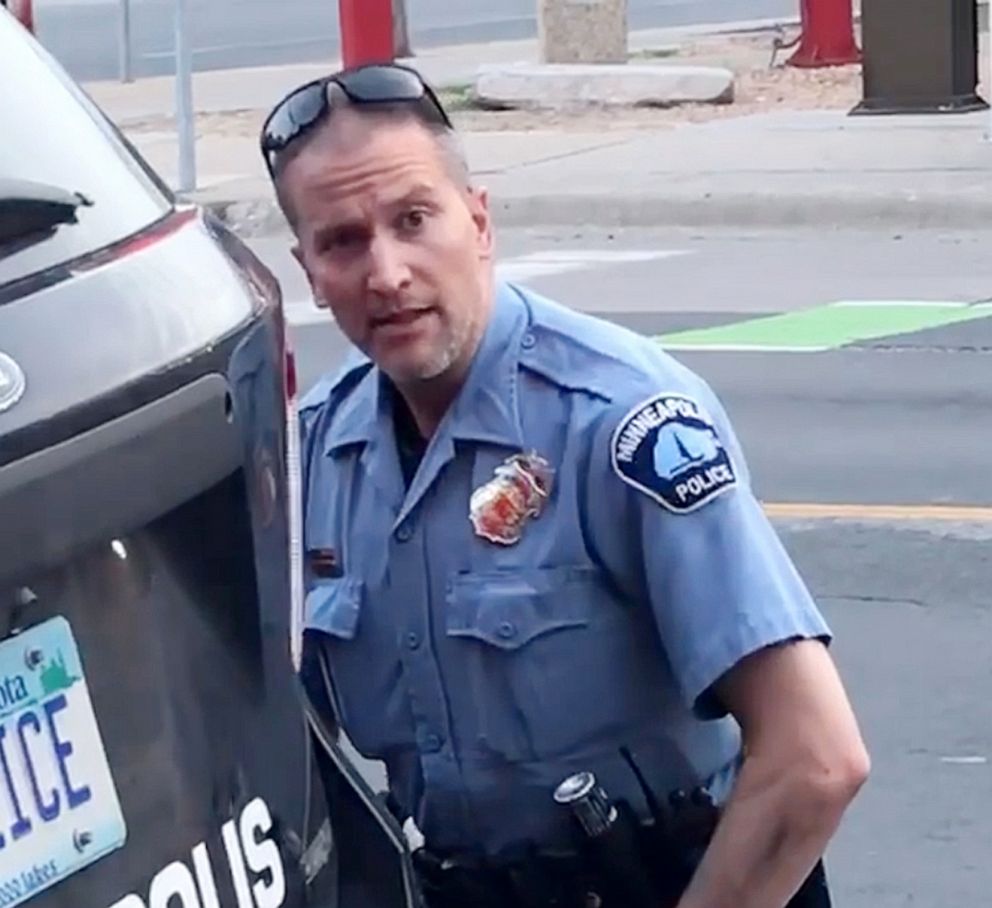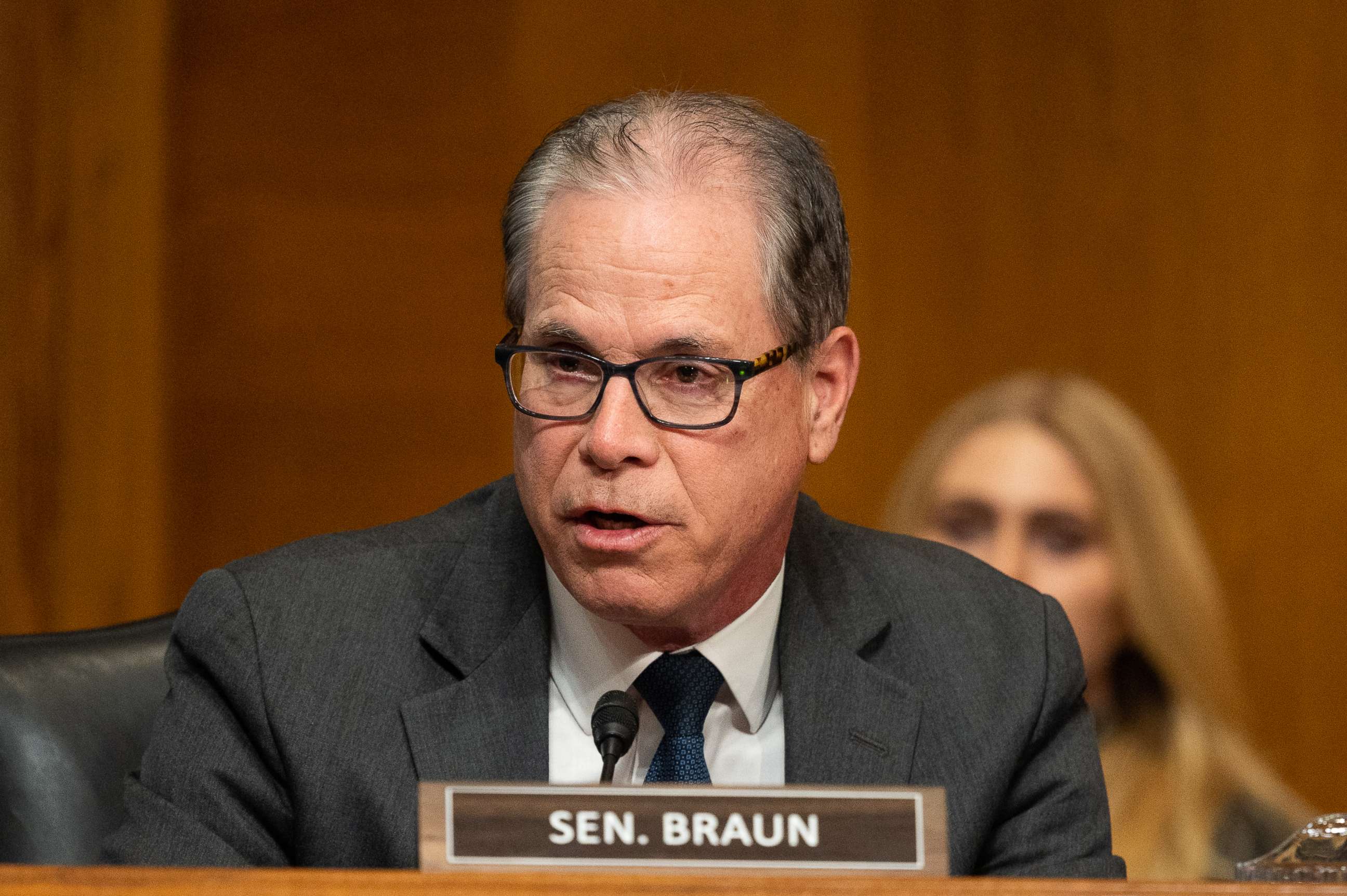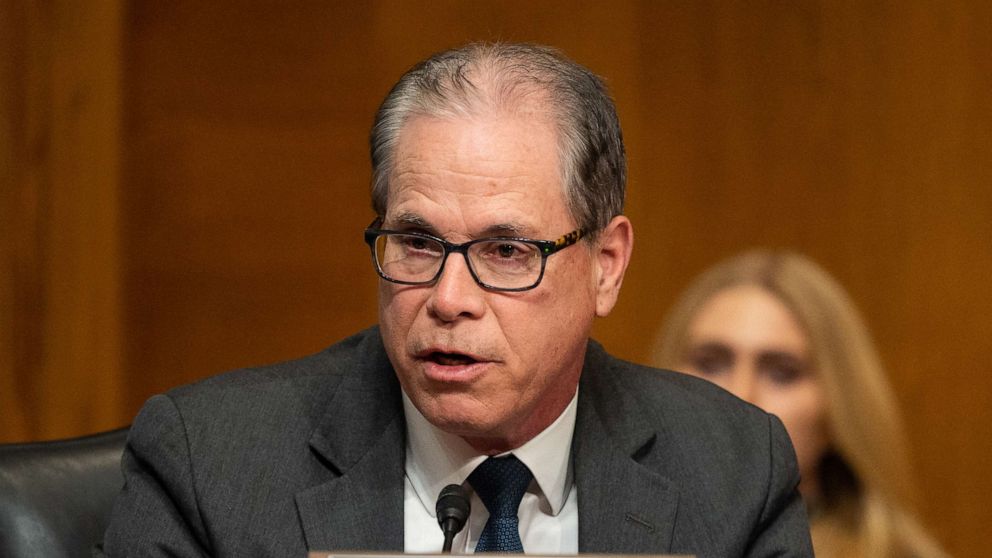Senate Republican bucks party and president on law enforcement immunity
With sweeping police reform on the cusp of collapse amid partisan recriminations in the Senate, one Republican has introduced a bill that he hopes might serve as a vehicle for bipartisan change.
Sen. Mike Braun, a freshman Republican from Indiana, introduced a bill Tuesday that he said attempts to rein in a legal shield for police officers called "qualified immunity," a judicially-created doctrine that attorneys for victims of police brutality say has made it nearly impossible to hold cops to account for violations of civil rights.
Qualified immunity, established by the Supreme Court in the 1980's, requires that any plaintiff point to a "clearly established law" -- meaning, a nearly identical past case -- to show a clear precedent that an officer's alleged conduct was illegal.
Braun's legislation would strip out the "clearly established law" requirement and replace it with language that states that "a defendant sued in his or her individual capacity ... shall not be liable if the defendant establishes that, at the time the deprivation occurred, the conduct alleged to be unlawful was specifically authorized or required by Federal statute or regulation" or by state law, according to the bill text.
"The bill is not going to rely on that 'it has to be so clearly established that if you didn't know about it,' or 'there wasn't a particular incident that you could refer to, you were immune.' This is going to say that the only way that you're immune is if there is a state or federal law or a court ruling that says what you've done is legal. So it puts more clarity to it," Braun said in an interview with ABC News.
Critics of qualified immunity say the shield makes it nearly impossible for those who feel they have been wronged to sue for damages.

Lee Merritt, attorney for George Floyd whose death in police custody sparked national outrage and calls for policing reform -- told senators recently that qualified immunity is a shield that almost always lets law enforcement officers avoid civil punishment
"Qualified immunity has been so expanded by our current judiciary, that it's almost an absolute immunity," Merritt testified to the Senate Judiciary Committee. "It has gotten out of control and it's almost impossible for me to do my job representing these families if it remains in place. I've been advised by other senior attorneys to get out of the business if qualified immunity remains."
Braun said he believes his legislation would result in victims winning more lawsuits against law enforcement officers.
But one legal expert said the legislation might have the opposite effect.
"Not only does (the Braun) proposal have everything turn on whether an officer could point to a local or state law that 'authorized' his conduct (which is not nearly as clear-cut as his comments suggest—consider, e.g., a provision authorizing the use of force to effectuate an arrest, and whether that authorizes force that a court believes is excessive but the officer does not), but there are some contexts in which this proposal might even broaden immunity by insulating an officer from liability even when it is clearly established that what he did is unconstitutional," Stephen Vladeck, professor at the University of Texas School of Law, wrote in a statement to ABC News.
Vladeck said, as an example, "any case in which the unconstitutional conduct was consistent with a local or state rule."
"Compared to nothing, this may be marginally better -- but not much, in my view," Vladeck added.

A former businessman and Harvard MBA graduate, Braun is an unlikely candidate to take on his party and the thorny issue of qualified immunity.
Normally a staunch ally of President Donald Trump, Braun has chosen to try to buck his party, telling ABC News that he fears if Republicans do not embrace this kind of change, they are likely to face fierce backlash.
"My view is that if you don't find something that is a framework -- other than what we've got -- they'll lose in the long run, because I don't know how long any entity can keep moving in the direction of more George Floyds, Rayshard Brooks, Breonna Taylors," Braun told ABC News, referencing a string of instances where African Americans died under questionable circumstances at the hands of police officers.
"We don't want to be on that side of defending those kinds of incidents because we're not willing to bend at all on the immunity question. So, it's a tough spot to be in," Braun said.
Still, the vast majority of Republicans have expressed opposition to altering qualified immunity, including Trump who has called eliminating the shield -- as Democrats are seeking to do -- a "non-starter."
"Imagine you're thinking of becoming a police officer, and you think you're going to be personally liable for every fracas you try to break up. Some think you don't become a police officer in that circumstance. Others think, well you just stay in the police car and don't ever get out because you could end up getting yourself sued," Senate Majority Leader Mitch McConnell told reporters on Tuesday, indicating that the proposal faces a stiff resistance.
But Braun said he remains optimistic that his party will evolve. The senator likened the possible shift to Republicans' evolution on the now rock-solid guarantee that any health insurance plan must protect those Americans with preexisting health conditions, something the GOP once opposed.
"If you do not make that pivot and say that clearly, you're still having that albatross around your neck of having to defend what your point of view was earlier, and I think this is the same thing here," Braun said. "I think President Trump is on the right side making sure law enforcement is not hampered for a difficult job. And if there was clean legislation that, again, would do what I've talked about -- allow for accountability on these egregious issues and not hamper you with these frivolous lawsuits -- he might consider it."




